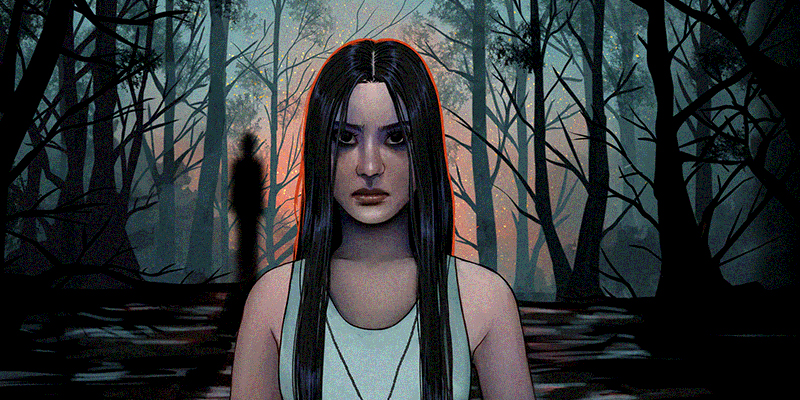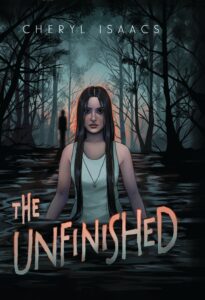We all know the scene: at the end of the story, when the body count is out of control, the one girl left alive stands up against the monster and delivers a defiant, badass one-liner. These are the Final Girls—the ones who live. Everyone wants to be a Final Girl, because what’s the alternative? The only possibilities are victim or survivor, and for a long time, women were allowed to be only one. You can guess which.
Early Final Girls from the 80’s tended to be one-note survivors rather than rebels. They were serious, nice, and smart, but didn’t seem to have a personality so much as a function. Further, while early Final Girls lived to see the end of the story, their victories were often hollow—the monster was revealed to not be completely dead or the girls were institutionalized when no one believed them; not exactly something you’d want to emulate in real life. But to me, the best Final Girls, the really interesting ones, are more complex characters. They’re stubborn. They see things other people don’t. They trust themselves and that’s how they stay alive.
Enter the Complicated Final Girl.
When writing The Unfinished, I decided that surviving wasn’t enough for my Final Girl, because I don’t think that just surviving is enough in real life. We want to thrive, to flourish—to come out of the story better, stronger, and wiser than when we started. When Avery discovers the black water and wakes the Ragged Man, she’s not at a great place in her life. She’s conflicted, fearful and pessimistic. Regardless, she jumps into her role of hero, keeping some of the quirks that make her real but adding new skills and growing in unexpected ways. I wanted my Final Girl to have some specific qualities that make her a complex but very recognizable hero.
Final Girls have always been “nice” and my ideal Final Girl is too, in the sense that she’s morally just. She doesn’t feed anyone else to the monster in order to escape; she saves who she can, even when they resist. In The Unfinished, Avery’s actions are motivated not by her own survival, but that of her friends. She could easily skip out halfway through the story and ignore the horror that’s unfolding in her town but she doesn’t. She stays and risks herself for the good of the group; her urge to protect encompasses more than just her own life.
I also wanted my Final Girl to learn something. By the end of the story, she’s enlightened, deciding that the way she did things before is unsatisfactory and so makes conscious efforts to live differently. This modern Final Girl is an agent of change in her own life, emerging from the horror with a different perspective on old problems, not just for herself but for the greater community. Avery is initially very much a lone-wolf. She thinks that she has to solve every problem on her own and that asking for help is weakness. Along the way, she comes to realize that to not accept help from her community is to doom herself to failure. Avery uses the knowledge that she and her friends gather and decipher to defeat the monster haunting them all. Knowledge is power, and by the end of The Unfinished, Avery is very powerful.
Most importantly, I wanted my Final Girl to be someone with whom readers can recognize and identify. Being a girl has never been easy, not in horror or in real life, which is why girls need to see themselves doing incredible things and to know that it’s possible. Being real means not expecting Avery to live up to some outdated ideal in order to be recognized as heroic. Avery is not perfect. She is definitely a good person, but she’s also secretive, downright dishonest at times. She can be snarky and a bit prickly. She doesn’t know what she wants and isn’t honest with herself about what she does.
And that’s fine. Those things don’t make her any less or worse, just real.
Avery also doesn’t come from a position of privilege, but that part isn’t really new. No matter who she is, the Final Girl has never been the rich girl, the popular princess. She’s liked but not quite the same as the others in her friend group. What does that mean? To me, it’s a hint that the marginalized have been the template for Final Girls from the beginning. The qualities that women who are not cis white have needed to survive in real life—tenacity, intelligence, resourcefulness—are what enable the Final Girl to be on her feet when the credits roll. Escaping imprisonment and danger? Hiding and then running for your life? Women in some cultures have been there and done that for hundreds of years back and into the present. Avery’s uncertainty as to where she belongs doesn’t negate the reality that she’s lived with one foot in two worlds. But it’s this quality—her otherness—that she initially sees as a deficiency that ultimately turns out to be her greatest strength.
Aside from being entertaining, it’s important that readers see themselves in Final Girls, because these girls don’t just survive, they thrive. Identifying with the Final Girls is virtual practice for success, whether that looks like being outstanding in your field or being the last one standing literally. It’s rehearsal at a safe distance for outsmarting, outrunning and outlasting the forces in this world trying to hold you back, silence or simply end you. All of us need that, but some have never seen it in people who look like us. Some of us have never seen success for people where we come from, how we identify and who we are.
Maybe we should look at Final Girls not as fantasy but a template, a “How to Survive” example in this world where there may not be supernatural forces stalking us, but there very definitely are monsters. Final Girls can teach us how to recognize, access and utilize the power that we all have; they show us that monsters can be defeated. To make these characters truly useful though, we have to depict girls wielding that power who are complicated like us and who look like us—all of us.
So when shadows rise and there are heavy footsteps on the stairs, think—what would a Final Girl do? Being a Final Girl is being resourceful, strong, looking the monster dead in the eye and saying “Nope.” Why shouldn’t she look like you in that badass moment? Why shouldn’t she have your hair or my language? Why shouldn’t she be us?
***


















